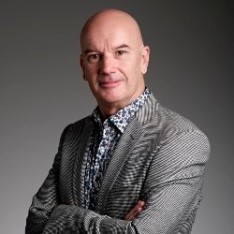‘We used to mail every Australian, alive or dead, often’, says Amex digital marketing chief
The relationship between IT and marketing departments has transformed from “adversarial” to one of close collaboration, while the scattergun approach to marketing is history, according to American Express’ head of global digital marketing.
Speaking on a panel at an Oracle Marketing Cloud event where companies outlined some of fundamental changes that have impacted the industry Jeffrey Evans said marketing and IT have patched up their differences and are now “speaking a common language”.
Evans told the discussion that the biggest change has seen Amex end its mass approach to marketing – “we used to mail everyone in Australia, alive or dead, often” – and begin to use data and analytics.
“For us, what has changed the most is that gut feel has left the room,” he said. “The batch and blast mentality has gone. We used to mail everyone in Australia alive or dead, often, and create this horrendous experience. Now our engagement size is a lot smaller but yet the conversion and returns are a lot higher. It’s being smarter about who you are targeting. That’s been the biggest change.”
Asked about marketing’s relationship with IT, Evans said: “We went from adversarial, where we were fighting each other, through to now where we are the first people in the room and IT have a seat at the table with us.”
The two departments began speaking a “common language”, he said, as both began to understand each other and their “key drivers”.
“That’s when we started to see the change,” Evans told delegates.
Telstra general manager customer communications Keiron Devlin said more time is spent with data analysts “interpreting data” verses five years ago “when I don’t think I ever had a conversation with a data analyst”.
Martyn Raab, director commercial, business development and CRM at Network Ten, told the discussion that one of the biggest changes is “how marketing is executed”.
“A lot of organisations are moving away from a campaign-based approach to an always-on approach,” he said, adding that Ten uses social media channels to communicate “which you can’t switch off”.
Skill shortages were identified as one of the problem areas in the industry with Evans stressing that companies need to make themselves appealing to potential digital experts, something of a “challenge” for Amex.
“One of the things that is increasingly difficult as an organisation is the need to make yourself attractive to the digital talent that is out there,” he said. “One of the challenges we have as a company with 164 years of history is that are we seen as a leading innovator? We are working closely to make sure that from a leadership perspective the leaders are embracing this digital-first mindset.”
He added that the complexities surrounding marketing meant it was no longer regraded as the “arts and crafts department as some of our unlearned colleagues would unkindly label us”.
Despite the rapid rate of change, Raab told the panel that the fundamentals of marketing have not changed.
“But it’s definitely much tougher and more complex. There is more noise and technology and the way people communicate is more complicated. So it’s harder to reach people in a more efficient way, so we rely on more automation,” he said. “[My advice would be] don’t bite off more than you can chew. It’s better to do a couple of channels well than doing them all badly.”
Devlin added: “It is more complicated but in the complexity I see the opportunity. I wouldn’t have it any other way. The things that we get to work on every day and the opportunity that is there for us to go and build out and deliver against are fantastic.”
Steve Jones





I killed my Amex membership this year after more than 20 odd years after they advised that their annual platinum card fee was going up by $300 pa. Service I received in the last few years from them was poor and benefits almost non existent. They are becoming increasingly irrelevant as far I am concerned. They have failed to meet the markets expectation in light of competition and if they are as slick with their IT/data it sure as he’ll isn’t obvious in retention
The issue here is that without a ‘gut’ feel what is marketing these days.
Data and Analytics can deliver the most tailored of communications though without that so called gut feeling the messaging will not resonate.
We / working in the marketing and comms field need to find the happy medium between D&A and gut feel. Otherwise we are ALL redundant – tomorrow.
To build on what Marteau said. Analytics is backward looking, but helps to support foward looking ‘gut feel’ initiatives.